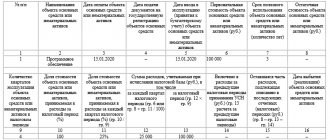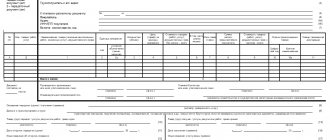Why do you need accounting?
While the business is not large, it seems that it is possible to keep all the information about cash flows and obligations in your head, or it is enough to write down the most important things in a notebook, but keeping accounting is pointless. This is true to some extent: the smaller the business and the number of transactions, the easier it is to track transactions. But competent accounting allows not only to record the facts of economic life. Thanks to him you can:
- Assess the real financial position of the enterprise
- Monitor the company’s performance and identify discrepancies with forecasts
- Find reserves
- Identify profitable and unprofitable transactions
- Monitor compliance of activities with legal norms
- Submit reports on time, following the schedule
According to Law 402-FZ, individual entrepreneurs and branches of foreign companies may not maintain accounting - all other enterprises are required to do this and submit specific reporting forms to the tax office.
Accounting rules and key concepts
The basis of accounting is the processing of primary documents that correspond to specific business transactions. These are expense reports, invoices, invoices, etc. You can use unified forms of primary documents or those developed independently - the main thing is that they contain all the details specified in paragraph 2 of Art. 9 of Law 402-FZ. For some types of “primary” the use of standard forms is mandatory.
Information from primary documents is recorded in accounting registers - paper or electronic documents in the form of statements, journals, tables, etc. Each enterprise independently chooses which registers to use, using standard ones or ones developed “for itself.”
Information from the “primary” is entered into registers using the double entry , which reflects the receipt and expenditure of material goods. For example, the purchase of raw materials means the receipt of materials for production and at the same time the expenditure of funds. the receipt (debit) is recorded in one column , and the expense (credit) in monetary equivalent is recorded in the second.
The same fact of economic life is “passed” through both columns and marked with two different numerical codes. These numeric codes are called accounting accounts and correspond to specific groups of related business transactions. Each company independently decides which accounts to use, selecting the ones they need from the general plan. Recording debits and credits with accounts is called an accounting entry .
Based on the transactions for each account, a balance - the difference between its debit and credit turnover for a certain period, which can be zero. Accounts are divided into active - reflecting the assets of the enterprise, passive - reflecting the sources and expenditure of funds - and active-passive. If the debit of the account is greater than the credit, the balance is called a debit; if less, it is called a credit; if the debit and credit are equal, then the balance will be zero. The balance of an active account can be debit or zero, the balance of a passive account can be credit or zero, and the balance of an active-passive account can be both debit and credit, and possibly simultaneously.
Data for each account helps to compile a balance sheet , which groups all the assets and liabilities of the company for the reporting period, and a statement of financial results (also known as profit and loss statement). These two documents, as well as the appendices to them, are the financial statements that each enterprise submits to the Tax Service once a year. The list of appendices includes: a statement of changes in capital, a statement of cash flows, a report on the intended use of funds and explanations to the statements.
In a properly prepared balance sheet, assets always equal liabilities.
Responsibility of the accountant and manager for the state of accounting
In some cases, a manager, having the appropriate qualifications and experience, can keep company records independently: if it is possible to maintain simplified accounting, or we are talking about a medium-sized business entity (Article 7-3 of Federal Law No. 402). The manager is responsible for the state of the company's accounting work.
If the work is entrusted to a single accountant with the functions of a chief accountant, or the company has an accounting staff headed by a chief accountant, he will be responsible for maintaining accounting records by law. The chief accountant is responsible for each employee of his service and for the quality of the accounting data generated by him. When hiring new employees, it is advisable to monitor the content of their employment contracts regarding the personal responsibility of performers for the quality of work.
Currently, all types of punishments, including criminal ones, can be applied to the chief accountant.
Labor Code of the Russian Federation
Contains a number of articles allowing the chief accountant to be punished (Article 81(9), 192.243), up to and including dismissal. According to Art. 243 financial liability arises in the following cases:
- the damage was caused with intent;
- due to negligence;
- under the influence of mind-altering substances;
- if a secret protected by law was disclosed, etc.
Attention! If the employment contract does not specify the conditions for the occurrence of financial liability of the chief accountant, the amount of financial liability cannot be higher than the average monthly salary (Plenum of the Supreme Court, post 52 of 16-11-06).
Code of Administrative Offenses of the Russian Federation
For gross violations in record keeping, Art. 15.11 provides for fines of 5-10 thousand rubles, and if the violation is committed after a re-check of the accounting department, the amounts increase to 10-20 thousand rubles. In addition, the chief accountant may be disqualified.
Criminal Code of the Russian Federation
Criminal liability of the chief accountant is also possible in accordance with Articles 199, 199.1 or 199.4. It occurs for malicious failure to pay obligatory payments to funds, contributions and, in the most extreme case, if it is proven by the court that abuses occurred, causing significant material damage, leads to imprisonment.
Attention! Gross violations of accounting are understood as: distortion of indicators by more than 10%, underestimation of the tax burden by the same percentage due to poor quality accounting and tax records, inclusion in primary documents of an economic event that actually did not exist, etc. ( Article 15.11 clause 2 of the Code of Administrative Offenses of the Russian Federation, note 1).
What is simplified accounting
Since 2013, according to paragraph 4 of Art. 6 of Law 402-FZ, small enterprises have the right to conduct accounting in a simplified form.
Let us remind you that a business is considered small if its annual income is no more than 800 million rubles, the number of employees is no more than 100 people, the share of participation of the state and funds in the authorized capital is no more than 25%, and the share of other legal entities is no more than 49%.
The essence of simplified accounting was revealed by the Ministry of Finance of Russia in Recommendations for the use of simplified methods of accounting and preparation of accounting reports. The document offers small businesses 3 options for simplified accounting: its full form, its abbreviated form and the simplest one.
The full version of simplified accounting is recommended for enterprises that are faced with a large number of diverse business transactions. It involves the use of an abbreviated chart of accounts, in which related accounts are combined into one. This method also allows you to correct errors in the current reporting period. Register templates that can be used for this form of simplified accounting are given as appendices to the Recommendations.
The abbreviated form of simplified accounting assumes everything that the full form does, but also allows you to keep only one instead of several registers - a journal of accounting facts of economic life. A sample journal is also included in the appendix to the Ministry of Finance document.
The simplest form of simplified accounting is recommended only for micro-enterprises - companies that have no more than 15 employees and an annual income of no more than 120 million rubles. This method of accounting allows you to avoid double entries indicating debit and credit. And keep only a book of accounting facts of economic life according to groups of articles of so-called reporting documents. This accounting method is called cash accounting .
All 3 forms also imply simplified accounting reporting: small businesses are required to provide the tax authorities only with a balance sheet and a statement of financial results - without attachments.
However, not all small businesses can maintain simplified accounting. This is prohibited for:
- organizations whose activities are subject to audit;
- housing construction and credit consumer cooperatives;
- microfinance organizations;
- public sector companies and political parties;
- law offices and notary chambers;
- NPOs performing the functions of foreign agents.
Who is responsible for organizing accounting?
The legislator does not disclose the concept of “organization of accounting”, despite the fact that this phrase is given, in particular, in one of the main regulations governing accounting - order of the Ministry of Finance of Russia dated July 29, 1998 No. 34n.
The head of the business entity is responsible for organizing accounting (clause 6 of order No. 34n). From practical experience, it is legitimate to understand the organization of accounting as:
- legal registration of the accounting system (for example, the establishment of regulations on accounting, the issuance of orders on the inclusion of positions responsible for accounting in the staffing table, the registration of specialists for the corresponding positions);
- technical support for the accounting system (purchase of computers, accounting software and other infrastructure necessary for the work of specialists);
- organization of direct accounting.
How to do without an accountant
If you can’t yet hire an experienced specialist, there are other ways to handle accounting.
If you are an individual entrepreneur, you can not keep accounting records and limit yourself to financial ones, which will allow you to track cash flows.
If you are an LLC that meets the criteria for a small business, try to do the accounting yourself - take short-term accounting courses or use special programs that do not require special economic knowledge. Some services offer a free trial period and business solutions to choose from. For example, the Accounting Department of Sberbank has three of them.
If you apply several tax regimes, accounting will be complex - in this case, qualified assistance is desirable. Hire a trainee operations operator who can process primary documentation, or outsource accounting, or use different software for operations in each mode. The costs of these services will be fully repaid.
What is meant by accounting for income and expenses?
The concept of “accounting for income and expenses” is used in the Tax Code of the Russian Federation, which obliges taxpayers, in cases established by law, to account for income, expenses and their taxable items (subclause 3, clause 1, article 23 of the Tax Code of the Russian Federation). Thus, individual entrepreneurs may not maintain accounting records if they maintain tax records.
Let us remind you that entrepreneurs can apply the following tax regimes in their activities:
- simplified tax system;
- OSNO;
- Unified Agricultural Sciences;
- UTII;
- PSN.
Let's consider which of these regimes provide for accounting for income, expenses and other objects of taxation.
How to choose an accounting program
There is no ideal software that would suit both a nut shop and a window factory. When choosing a program, think about what it should be able to do and what needs it should meet. Here is a list of parameters that are worth considering:
- preparation of reports in accordance with the special tax regime and organizational and legal form;
- possibility of synchronization with a cash register;
- ability to run on different devices, including mobile;
- availability of reminders about reporting deadlines;
- ability to generate reports in figures and graphs;
- degree of difficulty in handling;
- price.
Programs designed for non-specialists are easier to use: they provide hints, generate reports based on ready-made schemes, and simplify the analysis of financial data.
How to draw up an accounting policy
Accounting policy is detailed instructions for maintaining accounting and tax records. As a rule, it is compiled by an accountant, and approved and secured by the appropriate order by the head of the company. If the accounting policy is developed correctly, thanks to it, in the event of an accountant’s dismissal, the business can easily be continued by a new specialist or the manager himself.
The list of accounting policy provisions depends on the type of activity of the company, the chosen tax regime and whether simplified or complete accounting is used. But - in terms of accounting - the accounting policy should indicate the following:
- The person responsible for accounting;
- What accounting method has been chosen: simplified, abbreviated or simple, paper or electronic;
- Working chart of accounts;
- Forms of primary documentation and registers;
- The procedure for accounting for income and expenses;
- Regulations on the company's fixed assets and the procedure for their assessment, inventory and recalculation;
- The procedure for recording and evaluating inventory, goods and finished products;
- The procedure for making corrections and error criteria;
- List of regulatory documents: applicable accounting provisions (PBU), Tax Code, Law 402-FZ.
Templates for registers and primary documentation, if they are developed by the company independently and differ from the unified ones, are drawn up as appendices to the policy.
To create an accounting policy that includes accounting and tax sections, you can use paid or free constructors that are easy to find through Internet search engines. As a rule, such services are able to adapt to the applicable tax regime and even a combination of regimes. The main thing is to make sure that the designer used takes into account current legal requirements, and if possible, contact a professional to develop the document.
The accounting policy is the same for all business divisions. As necessary, the document can be supplemented with new provisions, but changes are allowed only once a year. And only in 3 cases: if legislation or business conditions have changed (for example, types of activities), and also if other methods of accounting have been chosen.
Which organizations are required to maintain accounting and tax records?
Often, when turning to a specialized organization for accounting services , many companies and individual entrepreneurs do not think about what this concept includes. Meanwhile, the essence of accounting services lies not only in maintaining company accounting records.
The thing is that one party, applying for the services of an accounting company, puts one meaning into the concept of accounting services, and companies providing accounting and tax services mean something completely different.
The very concept of accounting services is much broader than just bookkeeping.
Let's try to figure it out.
Tax and accounting - similarities and differences
Many people do not think about the difference between accounting and tax accounting, and do not separate these concepts at all. Meanwhile, these are two completely different accounts.
tax and accounting - two different types of accounting
Responsibility for maintaining tax and accounting records
directly depends on the status of the taxpayer, who is a subject of economic activity.
In other words, legal entities, commercial and non-profit organizations, regardless of the organizational and legal form of ownership, and since 2013, regardless of the taxation system applied, are required to ensure the maintenance of accounting records in accordance with current legislation.
Everyone except entrepreneurs is required to keep accounting records
Individual entrepreneurs are exempt from recording their activities in accounting accounts. In other words, entrepreneurs are not required to maintain accounting records by law.
Tax accounting is carried out by all legal entities and individual entrepreneurs
However, all business entities: all legal entities and individual entrepreneurs are required to ensure the maintenance of tax records in full compliance with the Tax Code. At the same time, tax accounting is absolutely differentiated and has significant differences in the procedure.
The tax accounting procedure depends on the applied tax system
Tax accounting of organizations directly depends on the tax system used. Depending on what taxation regime the company is in, what taxes it pays, and what taxes it is exempt from, the tax accounting of a particular company depends.
Likewise, the accounting of entrepreneurs will differ significantly depending on the taxation system used by the entrepreneur.
At the same time, tax and accounting for an LLC and an individual entrepreneur applying the same tax regime will have significant differences.
Since all LLCs have a direct obligation to ensure the maintenance of accounting records, regardless of the tax system applied, and no individual entrepreneur is required to maintain accounting records. For legal entities and individual entrepreneurs applying the same tax regime, there are different procedures for paying a number of taxes and, as a result, different deadlines and reporting forms.
However, by accounting, almost all organizations and individual entrepreneurs understand that it is the responsibility of an accountant or an accounting service center to fully maintain all areas: accounting, tax accounting, personnel accounting, cash accounting, etc.
the same transactions in tax and accounting can be accounted for differently
I would like to note that tax accounting is a separate accounting of the same transactions that are reflected in accounting, and often the same transactions in tax and accounting are reflected according to different rules. For these reasons, the financial result: profit or loss of the company at the end of the quarter or year, will be different in accounting and tax accounting.
Personnel accounting is a separate type of accounting
Personnel accounting has nothing to do with accounting or tax accounting.
HR accounting does not relate to accounting and tax accounting
At the same time, all companies, regardless of the organizational and legal form of ownership, as well as individual entrepreneurs, are required to maintain personnel records and draw up all relevant personnel documents.
Accounting for cash transactions
Cash transactions are also required to be carried out by all commercial and non-profit organizations, individual entrepreneurs, in accordance with the current procedure.
If small enterprises that apply special tax regimes can keep accounting records in a “lightweight” form, individual entrepreneurs are not required to keep them at all, then accounting for cash transactions, with the formation of all relevant documents, is the responsibility of all business entities without exception.
Everyone is required to keep records of cash transactions.
At the same time, there is no concept of cash accounting in a “light version” or in full. There is a procedure for registering cash transactions, which is the same for everyone and the slightest mistakes lead to significant tax penalties and administrative liability.
There is no simplified cash transactions
It is quite difficult for a person who has nothing to do with accounting to understand all this. For this purpose, there are specialists with special education and extensive practical experience.
Therefore, it is worth transferring this entire rather confusing structure of laws, codes, by-laws, instructions, procedures and rules to companies providing accounting services, which, as we have now found out, within the framework of an accounting service agreement, provide a whole range of services that go far beyond accounting.
Parus Accounting Practice Center








